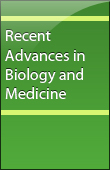


Diclofenac is a non-steroidal anti-inflammatory drug commonly used in the treatment of pain and inflammatory conditions in the tropics. Its easy accessibility without prescription has made it a commonly abused medication. The abuse has recently become worrisome as young adults in Nigeria have been observed to use diclofenac and alcohol for non-medical purposes concomitantly. This study was undertaken to study the nephrotoxic effect associated with the combined use of alcohol and diclofenac using an animal model and the protective effect of Vitis vinifera (Grape) seed and Carica papaya (pawpaw) seed. Adult albino rats were divided randomly into groups of six rats each, and each group was treated for 90 days with 5% or 45% alcohol with 2mg/kg diclofenac or 10mg/kg diclofenac, and some rats were treated with grape seed and/or pawpaw seed concomitantly. Diclofenac and 45% alcohol combination induced nephrotoxicity in rats and oxidative stress characterized by elevated serum urea and creatinine, increased malondialdehyde and decrease in reduced glutathione, catalase and superoxide dismutase in kidney homogenate, as well as moderate interstitial congestion and hemorrhage in rat kidney histology section stained with Haematoxylin and Eosin, which was significantly ameliorated by the grape seed and pawpaw seed. There was a 1.32% increase in relative kidney weight in comparison with control rats. The severity of the nephrotoxicity observed with the diclofenac-alcohol combination makes it a very unsafe practice. There is a need to explore the nephroprotective benefits of Vitis vinifera seed and Carica papaya seed for maximum benefit to man.
Read Article